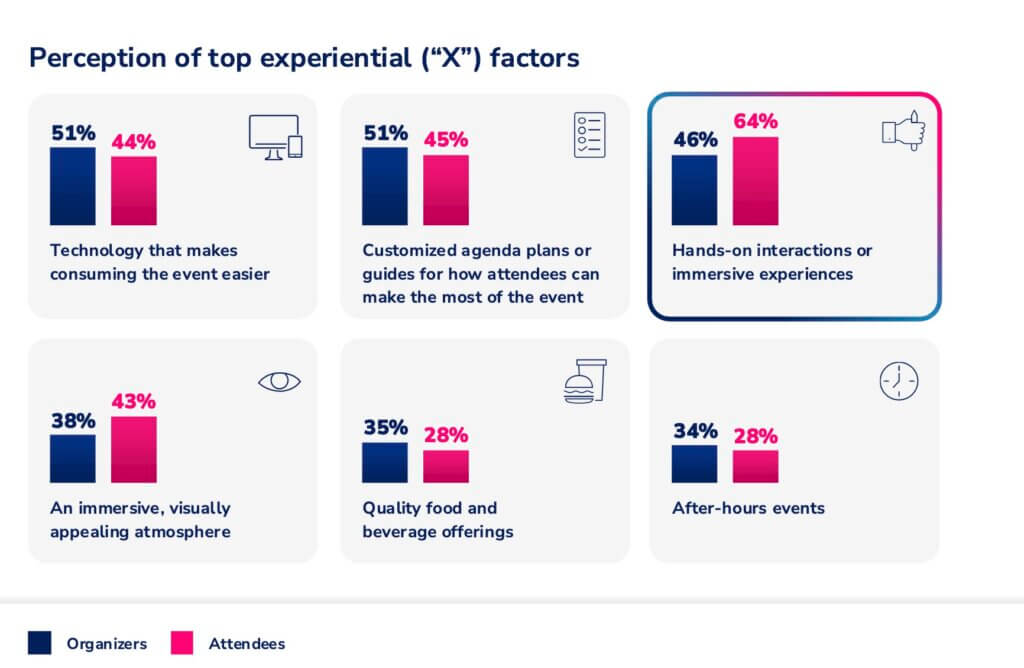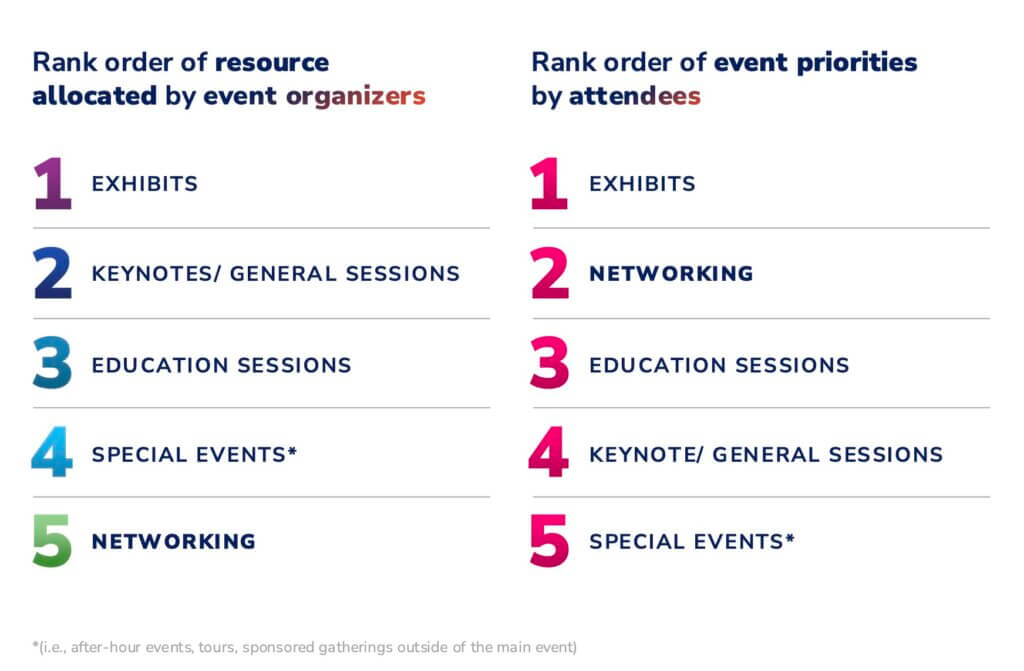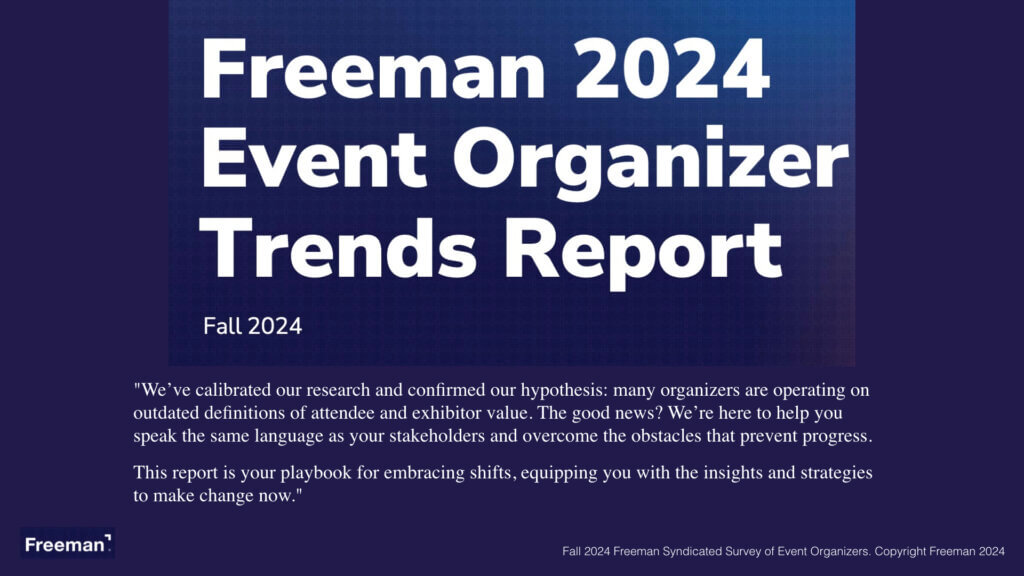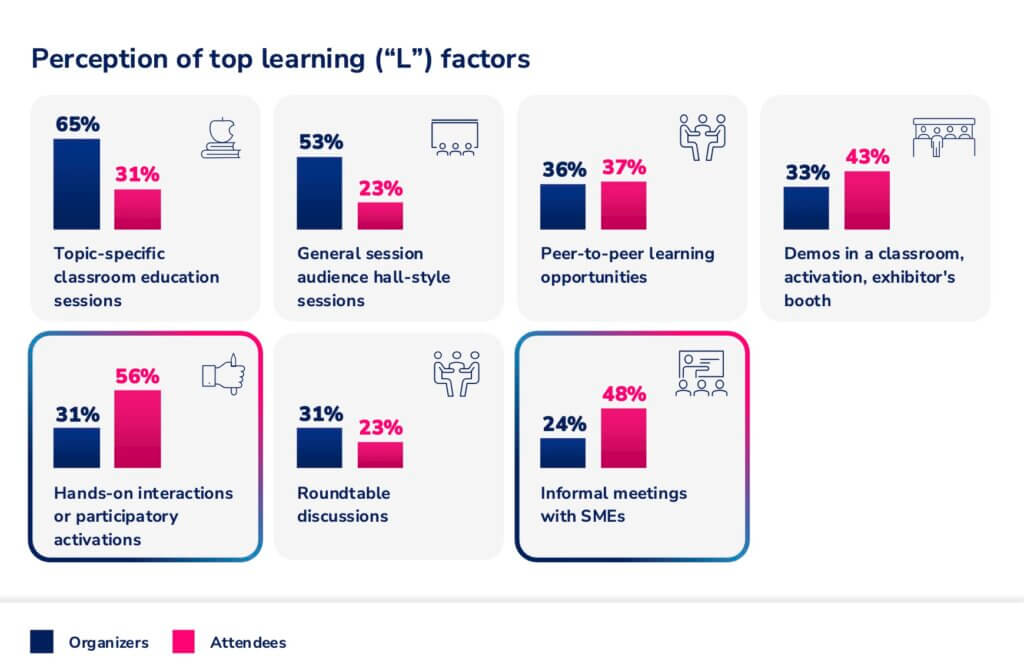I’ve not always agreed with Freeman’s Reports, but, if you’re in the meeting industry, Freeman’s Trends Report Q4 2024 is a must-read.
“We’ve calibrated our research and confirmed our hypothesis: many organizers are operating on outdated definitions of attendee and exhibitor value. The good news? We’re here to help you speak the same language as your stakeholders and overcome the obstacles that prevent progress.
This report is your playbook for embracing shifts, equipping you with the insights and strategies to make change now.”
Fall 2024 Freeman Syndicated Survey of Event Organizers. Copyright Freeman 2024
Why you should read this Freeman report
Read this report to discover if you’re doing what’s needed to improve your events for your attendees.
The biggest takeaway? Only a quarter of event organizers are constantly evolving their event designs. Freeman calls them the Innovators and describes how their approach differs from their Conventionalist peers.
“Although most organizers report that they consider market trends and audience needs when developing their most important events, only 27% of organizers report that dramatic audience-centric changes occur from one event to the next.”
Why this matters
Freeman’s Innovators create events that align closely with the true needs of attendees, while Conventionalists often stick to outdated models. The result? Innovator-led events are far more likely to delight attendees—and ultimately, all stakeholders.
As Freeman puts it:
“It makes sense that organizers are more focused on attendee-related outcomes than exhibitor/sponsor outcomes. After all, if your attendees don’t get value from your event, then your event partners won’t get value either.”
Freeman’s conclusions come from comparing the event attendee intent and behavior data from their Q1 2024 Trends Report with this report’s survey data of event organizers.
Here are three examples of how the Innovators set themselves apart:
1. Learning at events
There’s a significant gap between what organizers and attendees think are important factors affecting learning at events:
- 65% of organizers believe classroom lectures are top learning methods, while only 31% of attendees agree.
- Organizers underestimate the importance of hands-on interactions or participatory activations (31%) compared to 56% of attendees who prioritize them.
- Informal meetings with SMEs are rated important by 24% of organizers, but 48% of attendees find them crucial.
Innovators are better equipped to meet these important attendee learning modalities than their Conventionalist counterparts.
2. Experiential factors
Next, compare the differences in perception of top experiential factors.

3. Resource allocations versus attendee needs
Finally, let’s review where organizers allocate resources, compared to attendees’ event priorities.

Event organizers, are you listening?
Sadly, three-quarters of you are not.
The barrier to becoming an Innovator
I don’t want to be too hard on the majority (56%) of event organizers who want to evolve their meeting designs but continue to hold static events. According to Freeman, nearly half of event organizers don’t feel empowered to make changes:
So, we must ask: Why do most event programs remain the same when market trends and attendees continue to change?”
“Nearly half of event organizers do not feel empowered to evolve their event.
We’ve uncovered a troubling new gap. Although most event organizers want to evolve their program, only some feel empowered to do so.
The data suggests that many event organizers aren’t just faced with attendee and exhibitor misalignments, but misalignments with leadership that limit or prevent event evolution.”
This is a polite way of saying that leadership is often afraid of creating connection at events because they see it as losing control. Even though such control is a myth.
Freeman found that a majority of Innovators felt “extremely empowered” to evolve their event programs and reported greater satisfaction with their event evolution. Interestingly, 49% of Innovators have a single person or a small team dedicated to networking-related activities.
Wait, there’s more!
I’ve only reported some of the conclusions in the report, which is full of useful little tidbits, like this one:
“Innovators plan to focus more on elevating the attendee experience (40%) than increasing the number of attendees (38%). Perhaps because Innovators understand that by enhancing the experience, they’ll attract high-quality attendees.”
So read the whole thing!
Two minor quibbles
1. Generational models: Freeman uses the popular Generation XYZ framework to explain changes in attendee needs. I’ve written about the limitations of the slotting of people into Boomer/Gen X/Millennial/Gen Z categories as it mistakes new behavior for shifts in human nature rather than a change in opportunity. Much of the “difference” between “generations” is caused by a change in that generation’s environment or circumstances. In my experience, attendees have always responded favorably to events with the priorities that Freeman suggests, event designs I’ve been championing for decades. It’s just that these days they are more in tune with what younger generations find normal.
2. The language of connection: The words we use for meetings matter. Reports like Freeman’s often use the term “networking,” but what attendees truly seek is meaningful connections. Let’s talk about creating and supporting connection, rather than just “networking”.
Conclusion
Freeman’s Trends Report Q4 2024 is a must-read. Ten years ago, Innovators were rare, but today they make up a quarter of event organizers. This is a promising trend, but there’s still a long way to go. I hope our industry embraces these insights and continues evolving in a positive direction.


